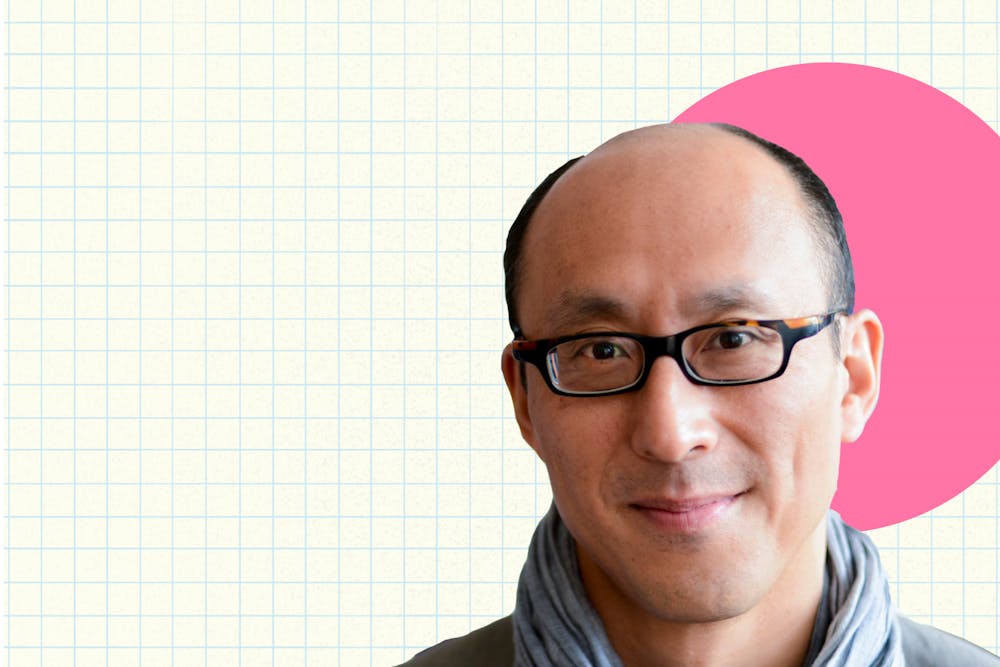
In light of Asian American Studies professor David Eng’s impending departure, students, alumni, and faculty are petitioning for the University to retain Eng and increase support for ASAM.
Fifty-eight Penn faculty members — all Eng's colleagues — signed a letter of support on April 14 calling on administrators to retain Eng, who they emphasized is "irreplaceable" due to his involvement across many disciplines at the University, in response to School of Arts and Sciences Dean Steven Fluharty’s announcement that the school will initiate a cluster search to fill multiple standing faculty positions in ASAM.
In addition, ASAM Director Josephine Park and the ASAM Undergraduate Advisory Board submitted a petition addressed to Fluharty, College of Arts and Sciences Dean Paul Sniegowski, Associate Dean for Arts and Letters Jeffrey Kallberg, and Associate Dean for the Social Sciences Emily Hannum urging Penn to retain Eng by supporting him and his partner, hire more tenured Asian American faculty across multiple disciplines, name a longstanding director of the program, and provide the program with fiscal and administrative resources to support its long-term growth.
This petition also collected testimonials from students and alumni about the program and its professors to present to the deans of the College, of which Park said she has received over 200 so far.
English professor Kevin Platt, one of the 58 faculty members who signed the letter, said that, although he appreciates the cluster hire, the University should also try to retain Eng himself. He added that because Eng is also a prominent scholar of Asian American studies, comparative literature, and gender, sexuality, and women’s studies, it will be difficult to find someone who could replace him.
“It’s [Eng’s] ability to bridge across queer studies, to Asian American studies, to English that makes him such an important member of these interstitial spaces at Penn,” Platt said. “[He] has been here for 14 years, and he’s built up a set of networks and relationships around him and now all of those will be lost. Whoever comes to replace him will have to start from scratch.”
Eng echoed the concerns of his colleagues who signed the letter, adding that the success of the cluster hire will depend on the University’s ability to retain him since he said the program needs prominent senior scholars to lead the cluster hire.
“My leaving Penn — and the administration’s lack of response to my departure — will send a bad signal nationally to scholars who might be interested in coming to the University,” Eng said. “You can’t initiate a cluster hire by letting [the ASAM program] shrink even further.”
Eng also noted that Park is scheduled to be on sabbatical in the 2021-2022 academic year following the end of her term as director on June 30.
“As of July 1, there is no director of [the ASAM program], so there will be no director to lead the cluster hire,” he said. “It’s not so meaningful to announce a cluster hire in [Asian American Studies] next year if there are few to no experts in the field to run the hire.”
A typical hiring committee consists of three to four faculty members, Eng said, adding that because ASAM at Penn is a program and not a stand-alone department, it does not have the ability to hire new faculty. The hiring committee leading the cluster hire will consist of faculty across several departments, but likely will not have experts in Asian American studies, he explained.
According to Fluharty’s announcement, the school will recruit a mix of junior- and senior-level scholars in a variety of social sciences and humanities departments. The exact number of hires will depend on the strength of the applicant pool and the number of departments looking to hire new faculty, Fluharty previously wrote to The Daily Pennsylvanian, noting that similar recent cluster hires in other programs resulted in three to four new hires.
Eng is an endowed professor — the highest status of professorship — in ASAM. Former Sociology and ASAM professor Grace Kao — who departed from Penn in 2017 — was also an endowed professor.
“The University would have to hire two endowed [professors] in [ASAM] just to maintain the status quo,” Eng said. “Even [hiring two endowed professors] would not be ‘building up’ the program, but only restoring it to where it was five years ago.”
One alumnus, 2003 Engineering graduate Franklin Shen, said he submitted a testimonial because ASAM was transformative to his experience at Penn, noting that he had not thought about his identity as an Asian American prior to taking a course in the department. The course allowed him to understand the history of Asians in America and how that impacted his life and identity in the United States, he said.
College junior and chair of ASAM UAB Claire Nguyen said that reading the testimonials only reaffirmed to her that ASAM is one of few spaces Asian American students have at the University. Park similarly mentioned that Eng's classroom is a "special place" for students, who she believes have a unique affinity for Eng's academic work.
Nguyen added that in previous years, SAS administrators have cited the low number of students minoring in Asian American studies as a reason for not allocating further resources to the program. Nguyen believes the number has remained low because core courses in the program have not been taught consistently, which keeps students from finishing the minor.
“We don’t have as many minors, but we have hundreds of students in our classes every year, and we sometimes have three different events in one week,” Nguyen said. “[ASAM is] such a pivotal space on campus for Asian students to not only critically learn about their histories, but to also be in [a] community with our faculty and staff.”
The Daily Pennsylvanian is an independent, student-run newspaper. Please consider making a donation to support the coverage that shapes the University. Your generosity ensures a future of strong journalism at Penn.
Donate







